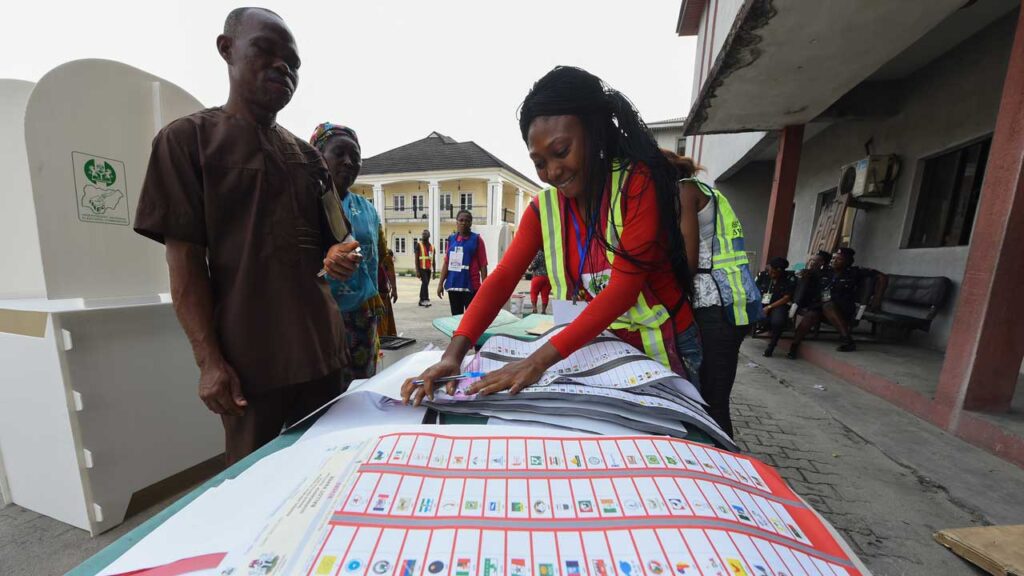
Edo State, the heartbeat of Nigeria, is relatively homogeneous culturally and linguistically. Yet, it is a chip off the old block, a microcosm in the many dimensions of the Nigerian politics notably, the geo-politics of power location often justified on the need for inclusivity and balance.
This has featured prominently in the primaries of the leading parties, the All Progressives Congress (APC) and the Peoples Democratic Party (PDP), as to which of the Senatorial districts – Edo South, Edo Central and Edo North – should justifiably produce the next governor for the State. Regrettably the question as to competence in matters of governance has not been on the front burner.
Well, on the question, which of the Senatorial districts should produce the governor, the argument in favour of Edo Central is persuasive and incontrovertible, the other districts having done so in succession in the last fifteen years.
Arising from the primaries, APC and PDP have endorsed their candidates from Edo Central and the Labour Party, Edo South. Now in the throes of socio-economic quagmire, many Nigerians are beginning to appreciate the wisdom to focus on competence, the ability to deliver the good, over and above inclusivity, ethnic and sub-ethnic sentiments.
The performances of many governors and the abysmal outing of the Buhari’s administration with all the trappings of nepotism and square pegs in round holes are eloquent testaments to the need to accord competence a pride of place in our development agenda.
The lack of long -term development plans with legislative backing at the national and sub-national levels is a draw back in our development agenda. It is a draw back because by it government is not a continuum and development is ad hoc and haphazard. It is worst when successive governments are of different political persuasion as was in indeed evident when President Buhari ignored the 2014 National Conference Report and the White Paper on Steve Oronsaye Committee’s Report. No doubt, implementation of these reports in their pristine forms would have changed the narrative in our development trajectory today.
It must be added however that President Jonathan whose administration initiated the Conference and the Committee lacked the courage to implement or set the machinery for implementation of the outcomes.
On government as a continuum, a few States are demonstrably exemplar, notably Lagos and Awka-Ibom where developments by at least three successive governments have been incremental with satisfactory results.
For Edo State, it bears recall that after Brigadier Samuel Osaigbovo Ogbemudia as military governor of Mid-West, later Bendel State, and Professor Ambrose Alli, who were pragmatic and visionary, focus development resumed under Adams Oshiomhole as governor of Edo State, the intervening years before him, characterised by retrogression and lack-lustre governance.
Governor Obaseki as successor to Oshiomhole has brought finesse and panache devoid of prependalism in the affairs of State through the instrumentality of corporate governance, characterised by transparency, accountability, meritocracy and prudent management of resources, human and material, all of which geared towards creating an enabling environment for socio-economic development.
This has had a salutary impact on the internally generated revenue of the state, which reportedly grew by over 40 per cent of the value of the penultimate year to N62bn in 2023. Now an investment destination, there are two modular refineries – Edo refinery and petrochemical company (3000bpd capacity) at Ologbo; Duport refinery (2500bpd capacity) at Egbokor.
There is the ethanol plant to produce ethanol from cassava at Ologbo and a second one under construction by DC United Foods Ltd., makers of Indomie. There is the Azura independent power plant, currently at 416MW capacity projected to ultimate capacity of 1500MW in addition to the existing Ossiomo plant (95MW) of the preceding administration of Oshiomhole. There are many companies now in Benin City actively engaged in manufacturing industrial products notably, tyres, ceramic tiles, car windscreen, plastics, etc.
Still on laying foundation for development, governor Obaseki’s administration has established Edo State oil palm programme with the mission to make the State the leading producer of oil palm in Nigeria. In four years of the administration 70 thousand hectares of land have been provided for the programme.
There is the CORA City project designed to create a new settlement and a new development hub projected on completion to house 50,000 people. Further, there is the Edo sea port project at Ughoton -GeleGele for which Mota Engil Africa has been selected as the preferred Bidder. The project when completed is envisaged to catalyse industrialisation of the State. The port is historic, the route through which the Portuguese first visited Benin in 1472 AD in the reign of Oba Ewuare the Great.
Underscoring the need for effective and efficient bureaucracy, the governor has reformed the civil service, improved the working environment and imbued it with the digital tools for e-administration. The same is the case with primary school teachers who have been retrained to be computer-literate and to deploy same in teaching and learning processes for the benefit of pupils as an integral part of the Edo Basic Education Sector (EdoBEST) transformation.
On welfare, there is the contributory pension scheme and the Edo health insurance commission. It is on record that workers in Edo State are not owed pension albeit there is the sore point of unpaid gratuities inherited largely from previous administration.
Early in the administration, sports were revitalised by a remarkable overhaul of infrastructure notably, stadia, sports complexes and arenas across the State, all in bid to reposition the youth for competitive advantage and positive engagement.
Further, there is the Victor Uwaifo Creative Hub and Sound Stage for artistic production including films, theatrical works, music and photography for the overall development of the creative arts in the youth. There is also the Edo Tech Park in Okhoromi community, an elite software engineering and leadership training institute to produce software engineers for an increasingly digital economy, projected to produce about 15,000 of such human resource in five years.
The forgoing narration is intended to highlight some strategic development activities of the Obaseki”s administration designed to reposition Edo State for investment and for good governance which must be sustained.
Incidentally, the governor is not given to optics of his activities through wasteful commissioning exercises, often with pomp and pageantry by some governors.
In other words, there has not been overt publicity of the activities of the government for Edo people to appreciate the underlining strategies. In all, he has demonstrated corporate governance in public affairs and it is my humble opinion that his successor must key into the strategies for incremental and sustained development of the State. Who then does the cap fit?
Professor Eromosele is former Deputy Vice-Chancellor, Federal University of Agriculture, Abeokuta.













